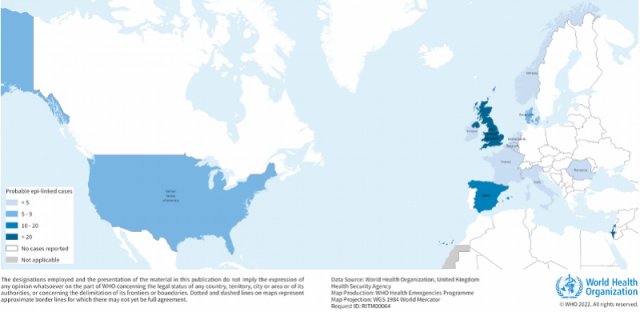On April 23, local time, the World Health Organization stated on its official website that an unexplained acute hepatitis has spread in many Western countries. The reporter learned from WHO that a total of 169 cases of unknown hepatitis have been reported in 12 countries, and at least one child died.

Japan’s Ministry of Health, Labour and Welfare announced on April 25 that the first case of a child possibly suffering from this acute hepatitis has also appeared in Japan.
The Asahi Shimbun quoted the Ministry of Health and Welfare as saying that the case met the World Health Organization (WHO) definition of a “similar case.” “Similar cases” refer to acute hepatitis other than hepatitis A to E found in children under 16 in liver tests since January this year.
The medical institution reported the case to the Ministry of Health and Welfare through the local government on the 21st of this month. The Ministry of Health and Welfare did not disclose the patient’s symptoms, place of residence, gender or age, nor did it know whether there was an underlying medical condition. But it can be confirmed that the patient has not undergone a liver transplant, and his new coronavirus test is also negative.
On April 5, local time, WHO received reports from the United Kingdom of unexplained hepatitis cases, the earliest of which was symptomatic in January this year.
As of April 23, local time, WHO has received 169 case reports from 12 countries, of which 114 cases were found in the United Kingdom, 9 cases in the United States, and others including Spain, Israel, Denmark, Ireland, the Netherlands, Italy, Norway, France, Romania and Belgium.
The age of the cases ranged from 1 month old to 16 years old. So far, 17 confirmed cases require liver transplantation, and at least 1 child died of unknown hepatitis.
According to WHO, the clinical syndrome of confirmed cases is acute hepatitis with markedly elevated liver enzymes. Gastrointestinal symptoms, including abdominal pain, diarrhea, and vomiting, have been reported in many cases. The common viruses that cause acute viral hepatitis were not detected in any of these cases. The WHO also said that adenovirus was detected in 74 cases. In addition, 20 cases were infected with the new coronavirus, and 19 were infected with both the new coronavirus and adenovirus.
The WHO states that adenovirus is currently a hypothesis for the cause of this unexplained hepatitis. Further studies are needed, including the possibility of increased susceptibility of young children due to reduced circulating levels of adenovirus during the COVID-19 pandemic, emergence of novel adenoviruses, and co-infection with SARS-CoV-2. The WHO said it is imperative to identify the cause so that control and preventive measures can be further refined. Common preventive measures for adenovirus and other common infections include regular hand washing and respiratory hygiene.